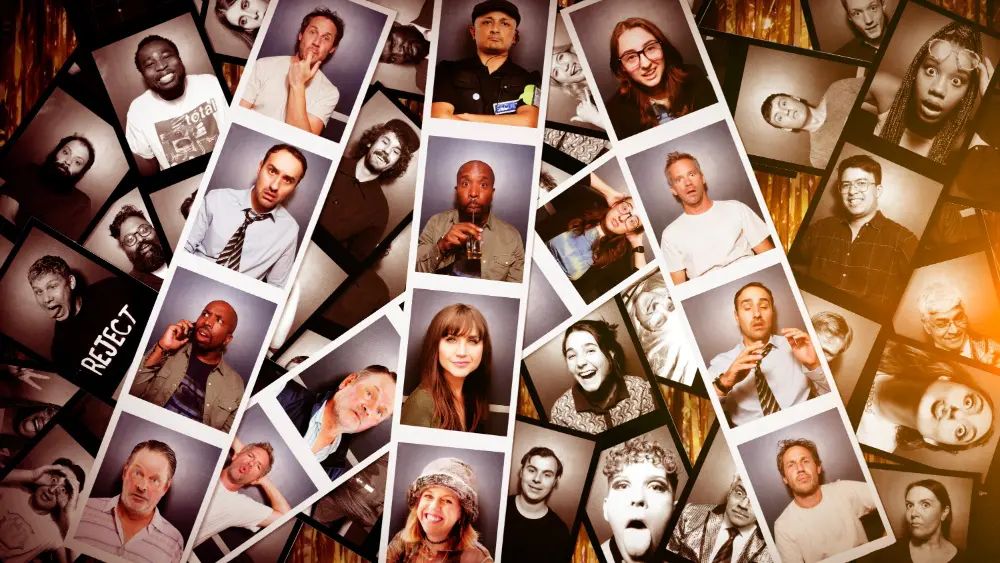Comedians take the stand in high-stakes sitcom lawsuit
High court echoes with laughter amid serious copyright claims
London High Court—Once a dignified hall of justice, the London High Court transformed into an unexpected venue for comedic drama as notable comedians testified in a high-stakes copyright lawsuit. The case involves accusations that Steve Coogan’s production house, Baby Cow, copied a small-scale YouTube series, blending both sitcom and stand-up comedy.
The allegations
Comedian Harry Deansway, who filed the lawsuit under his legal name, Joshua Rinkoff, claims that Baby Cow’s show, “Live at the Moth Club”, is a direct copy of his 2013 YouTube series titled “Shambles”. Deansway insists his original concept, notable for its unique mix of sitcom elements and stand-up sketches, was unjustly replicated by Baby Cow Productions.
Coogan’s production history
Interestingly, Coogan, a staple in British comedy and co-founder of Baby Cow alongside producer Henry Normal in 1998, is not implicated in the lawsuit and is not being accused of any wrongdoing. The majority shareholding of Baby Cow was sold to BBC Studios, with the company’s daily operations now managed by CEO Sarah Monteith. Coogan remains involved as a shareholder and creative director, retaining a significant but distant oversight role.
The comedy circuit connection
A key figure in the dispute is Rupert Majendie, Baby Cow’s head of comedy, accused by Deansway of being the linchpin in the alleged copying. The two had reportedly both worked and socialized over several years within the UK comedy circuit. Both Majendie and Baby Cow vehemently deny these allegations.
Similarities pointed out
In his testimony, Deansway highlighted multiple parallels between his show “Shambles” and Baby Cow’s “Live at the Moth Club,” which aired for a season on UKTV in 2022. Among the similarities he pointed out:
- Character profiles: Both shows feature a club owner whose niece works as a barmaid.
- Storyline arcs: Episodes where comedians suspect the club is haunted.
- Format: The innovative fusion of sitcom and stand-up, intended to spotlight up-and-coming comedians.
Awareness and prior pitches
Deansway further alleged that Majendie, a prominent comedy booker and TV producer, was familiar with “Shambles”, as it was promoted widely on social media. He also recounted pitching an early version of the show to Majendie when he worked at the BBC, who had expressed enough interest to forward it to higher-ups. Intriguingly, Adam Hess, who wrote the pilot for “Live at the Moth Club”, previously appeared in the second season of “Shambles”.
Courtroom exchanges and technicalities
Under cross-examination by Baby Cow’s lawyer Jonathan Hill, Deansway defended the realism of his show’s events, despite the lawyer’s claims of improbability. For instance, the absurdity of comedians being interrogated for a stolen pizza was cited by Hill to which Deansway retorted, “There are some weird people in comedy, so I think that’s realistic.”
When Majendie took to the witness stand, he maintained that any similarities were purely coincidental. He asserted that he had no knowledge of “Shambles” during the development of “Live at the Moth Club.” Questioned about the underlying ideas of both shows, he firmly disagreed with any commonalities.
Comedians’ testimonies
Baby Cow summoned several comedians, including Ellie White (“The Windsors”), Alexander Owen (“A Very Royal Scandal”), and Ben Ashenden (“Jurassic World Dominion”), who all contributed to writing “Live at the Moth Club” under Majendie’s direction. Each denied knowing about “Shambles” before their involvement with Baby Cow and attributed any similarities to chance.
Laughter in the courtroom
While the trial’s subject matter is undoubtedly serious, it has not been devoid of humor. Ashenden, appearing via videolink dressed as a medieval baker for a new project, quipped about his costume, evoking laughter. Similarly, White amused the courtroom by confirming her comedy partner’s company was hilariously named Horny4Cash Limited.
The broader context
This case underscores the challenges faced in the entertainment industry regarding intellectual property and creative ownership. Copyright laws aim to protect original works, but the subjective nature of creative ideas often leads to complex legal battles. Whether a smaller YouTube series can claim rightful ownership over a content format adapted by a well-regarded production company is a question that might set precedents for future disputes.
Closing thoughts
As this intriguing trial continues, it sheds light on the intricate dynamics within the comedy and entertainment sectors. It underscores the importance of originality and integrity in creative ventures, reiterating that artistic expression must be both protected and fairly recognized.
For more updates on this unfolding legal drama and other highlights from the world of cinema and television, stay connected and share your thoughts on social media.

 Italian
Italian







